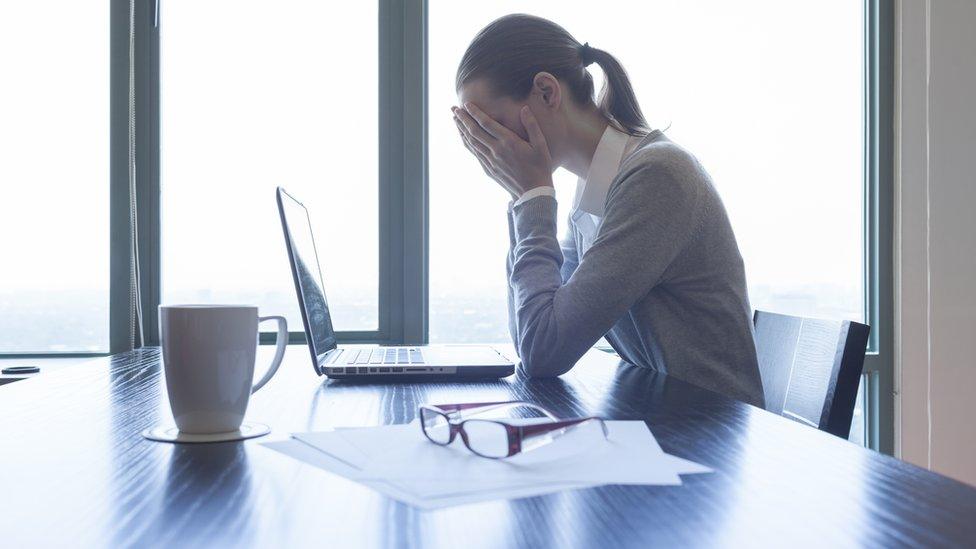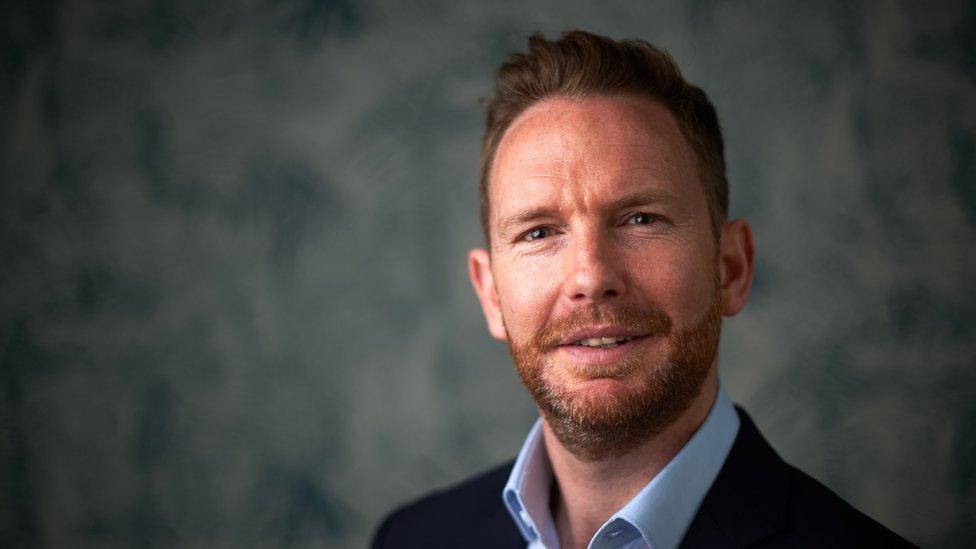Mental health: 'I returned to a deafeningly silent home'
- Published

Mental health problems can affect anyone in the workplace. Stress, depression, and anxiety have huge consequences for individuals and society. And, according to the Health and Safety Executive, external (HSE), the most common causes are workload, following by lack of support, and bullying.


Entrepreneur Guy Tolhurst, who runs three businesses, says that entrepreneurs need to be careful how business life becomes "intertwined" with personal life.
Mr Tolhurst, whose businesses include financial services and consultancy, says he has suffered with mental health issues for the past five years, including "panic attacks, acute anxiety, depression and stress".
He is trying to break the "taboo" about mental health issues at work through a campaign to help entrepreneurs called 100 Stories of Growth, external.
"We're not bulletproof just because we are entrepreneurs," he says.
His relationship broke down, which he believes was partly to do with his workload. "I returned home to an empty house after a full day at work." he says.
Whereas, before, his house had been full of the sound of his two children, he now "returned to a deafeningly silent home." he says.
"I realised at what cost I was pursuing my entrepreneurial life."
After his partner left he started to have panic attacks.
"I realised I had lost my support structure at home," he says.
Talk
His panic attacks gradually became worse, and after an unpleasant email he received while at an industry event, he had a "public" panic attack, and felt overwhelmed and debilitated.
Eventually he "couldn't get out of bed in the morning" but realised he had to take back control.
He now gets to see his kids at weekends but "it's hard when the children finish [school] at 3:15" and they are not there.
His advice to overwhelmed entrepreneurs is to talk to other entrepreneurs about their experiences, and he would also like to see investors take more responsibility for the well-being of small business owners.

Millions of working days are lost in the UK every year due to work-related stress, depression and anxiety, the HSE says.
The people who are most likely to report mental health issues are health workers and social workers, followed by people working in public administration and defence, and education.
And there is a high suicide risk for low-skilled men who work in construction, according to the Office of National Statistics, external.
High suicide risk for 'men in construction'
Mental health problems can affect absolutely anyone.
To coincide with World Mental Health Day, on Wednesday, some of the big banks and law firms are launching the Mindful Business Charter.
The charter, which was developed by Barclays and law firms Pinsent Masons and Addleshaw Goddard, aims to get firms to sign up to try to ease pressures on lawyers in financial institutions.
This commits firms to removing sources of workplace stress such as unnecessary pressure to complete work ahead of a deadline and unnecessary emails.

How to deal with workplace stress:
Talk about how you feel. If you can talk to trusted colleagues or a manager, great. If not, try a helpline.
Keep active. Try to build exercise into your day.
Ask for help. If it all gets a bit too much, family, friends or colleagues may be able to offer support.
Do something you enjoy. Try to enjoy your talents in and out of work.
Help others - activities such as volunteering can help boost self-esteem.
Source: The Mental Health Foundation

- Published11 September 2018
